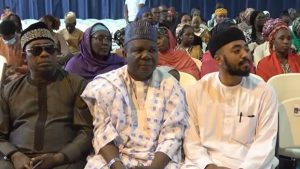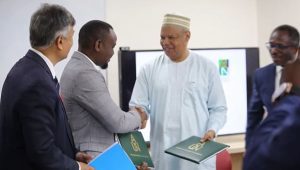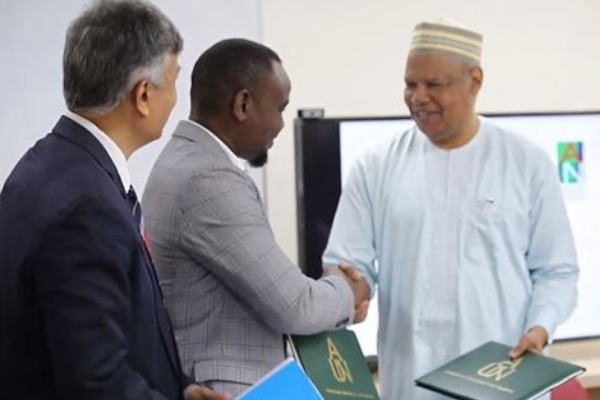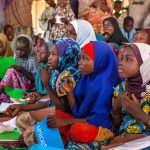The United Nations International Children’s Emergency Fund (UNICEF) has signed an MOU with the America University of Nigeria to run a post graduate course on Communication for Social and Behavioural Change CSBC in the institution.
The course is expected to inject new ideas on policy makers and other key players in the region.
The fight against the Boko Haram insurgency, as well as the alarming rate of low school enrollment and the general humanitarian crisis in the northeast, has now reached the classroom.
The 12-year insurgency war in the northeastern region of the country significantly affected school enrollment.


 The data released by UNICEF said the region has highest number of out-of-school children of the estimated 18.5 million.
The data released by UNICEF said the region has highest number of out-of-school children of the estimated 18.5 million.
UNICEF is now partnering America University to address this, hence the introduction of a post graduate course on Communication for Social and Behavioural Change CSBC.
The new course is targeted at molding the philosophy of opinion makers in the region.
Chief Field Operation Officer, UNICEF Nigeria Country Office Opiyo Nixon expresses delight over the partnership.
The President American University of Nigeria AUN professor Attahir Yusuf, in his speech said the new study is aimed at bridging the gap between Communication for Development C4D and Human Capacity in Nigeria.


He believes there is no better time or opportunity to facilitate social change and find solutions to challenges of out-of-school children, violence against children, stunting and other issues which can never be overemphasised.
Also, in his opening remark, Dean Jacob Udo-Udo gave insights into the significance of the partnership between UNICEF and the University.
Over 120 students affected by Russian/ Ukrainian war have been enrolled in the institution in pursuit of their academic career.
UNICEF says it would continue to partner both public and private Institutions across the nation’s regions to address the out-of-school children’s menace and health related issues as well as humanitarian crises in line with its core mandate.













